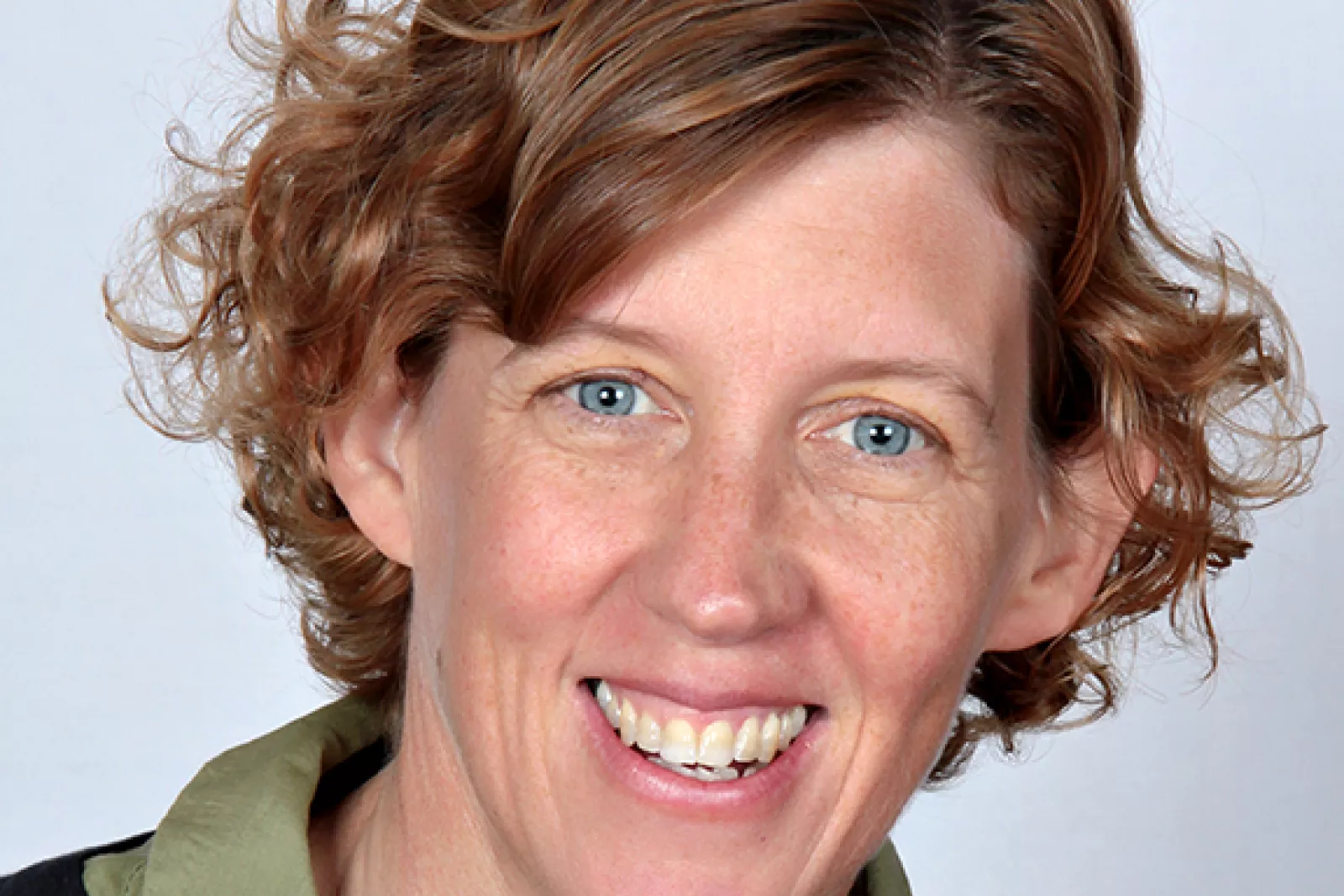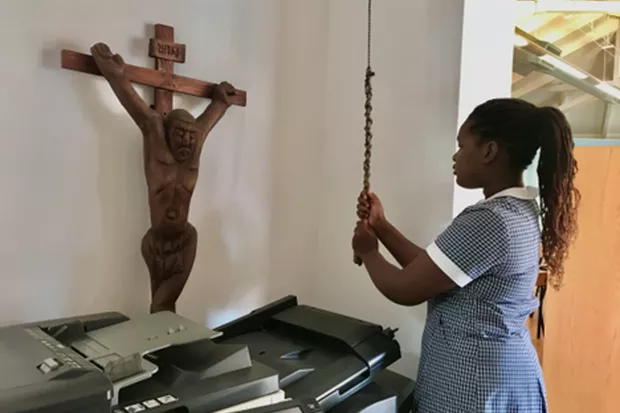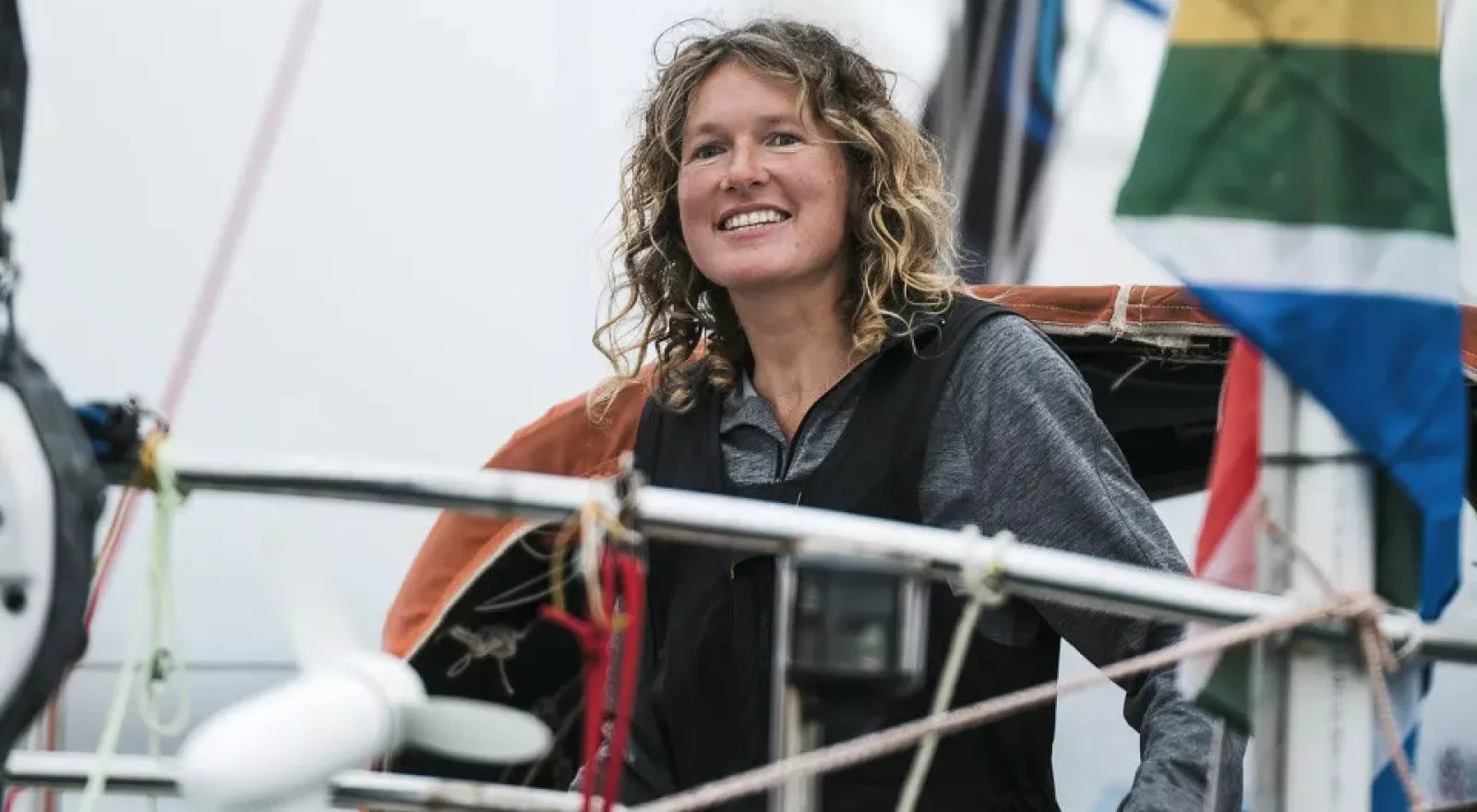From the Junior School head's desk: 5 May 2023

The Trinity term is here and my impression, after touring the campus on Wednesday, is that the children and staff are glad to be back. I had an opportunity to see all the girls and teachers from Grade 0 to 7 in our first assembly of the term – something I relish, despite the physical challenges of accommodating all of us in the Senior Primary hall – and to reflect on the remarkable journey that Junior School represents.
Another remarkable journey (one we spent time discussing in our assembly) was the one undertaken and recently completed by South African skipper, Kirsten Neuschäfer, for roughly eight months, around the world.
Neuschäfer was the only woman out of 16 entrants who set sail from Les Sables d’Olonne on the French coast on 4 September 2022, and she is the first woman, and South African, to win the Golden Globe Race, which is in its third iteration.
The competition, a retro sailing experience, “tries to emulate the conditions of the original 1968-69 race, when [British sailor] Robin Knox-Johnston relied purely on compass, sextant, speed log and dead-reckoning to become the first person to sail single-handed nonstop round the world. So no GPS, no autopilot, no internet weather forecasts and no boat longer than 36 feet” (Stephen Venables, “The unlikely new star of round-the-world sailing” in The Financial Times, April 22 2023). Or, in Neuschäfer’s characteristically measured words, this race is “not about having the latest technology: there is still a huge element of the unknown, a sense of adventure and a big element of luck.”
Neuschäfer has several years of delivering yachts and crewing and skippering on expedition boats in Arctic and Antarctic waters behind her, but she is unknown in the world of professional race sailing. She is also no stranger to embarking on adventures that bring with them “a huge element of the unknown”: at the age of 22, she made a 9000-mile bicycle trip from Morocco to the Cape of Good Hope on her own, despite strenuous warnings not to, and what she chooses to remember of this time is “the endless kindness of strangers”.
She has many qualities that make her a good role model for girls: she is resolute, modest, and hardy and she has the courage of her convictions. She also likes to dream big, confront her fears and take risks, of the calculated variety. It’s difficult not to admire her pluck; well-travelled epithets like resilient, brave, and humble attach to her in interviews and articles, and her broad smile and warmth on camera could make her a poster girl for intrepid adventure and girl power.
Watching Neuschäfer give interviews before the race, her desire to represent herself, her motives and intentions, accurately and sincerely, is apparent. She chooses her words carefully, makes it clear that she is more interested in being a good skipper than a good woman skipper; also, that she intends to win the race. She is grateful for her mother’s support, which is of the practical, rolling-up-your-sleeves and working-on-the-boat kind, and she is not above asking others for help. She relates to her boat, Minnehaha, as a person and shares the credit for winning the race squarely with the 36-foot vessel that partnered her on her epic journey.
Viewing the victory video created by the race organisers with the girls and listening to them spontaneously and cheerily sing along to the catchy jingle composed for the occasion (https://goldengloberace.com/), two things played on my mind: Neuschäfer’s “scary but intruguing” reflection on eternity: that she sometimes dropped sail, lashed the helm over to one side, swam away from the boat and thought about the Minnehaha sailing away; also, her decision to sleep aboard the boat even on the night she finished the race and reached land.
Winning, it seems, might not be as simple as we think.
SARAH WARNER
JUNIOR SCHOOL HEADMISTRESS
Related News

Little Saints News

Grade 0 News

Grade 7 News

